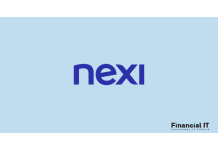Lemonway Unveils Online Onboarding Solution for...
- 10.01.2025 03:25 pm
Telr Partners With Apaya to Accelerate Digital...
- 09.01.2025 03:55 pm
Deutsche Bank Launches Merchant Solutions in Asia...
- 03.12.2024 12:45 pm
Garanti BBVA’s New Payment and E-Money Platform, TAMİ...
- 25.11.2024 11:15 am
City Bank Revamps E-Commerce Acquiring Business With...
- 20.11.2024 08:30 am
LTIMindtree Strengthens Strategic Partnership With...
- 19.11.2024 01:35 pm
Ecommerce Retailers Urged To Prioritise Payment...
- 19.11.2024 11:15 am
Mastercard Collaborates With Qover To Offer Embedded...
- 15.11.2024 02:55 pm
Mirakl and Mangopay Announce Strategic Partnership to...
- 12.11.2024 10:25 am
Mollie and Hyvä Announce Strategic Partnership,...
- 31.10.2024 03:25 pm
MoneyLion Launches MoneyLion Checkout, Bringing E-...
- 23.10.2024 10:25 am
Klarna Cashback Drives $100M-Worth of Sales in Just...
- 11.10.2024 11:00 am






















